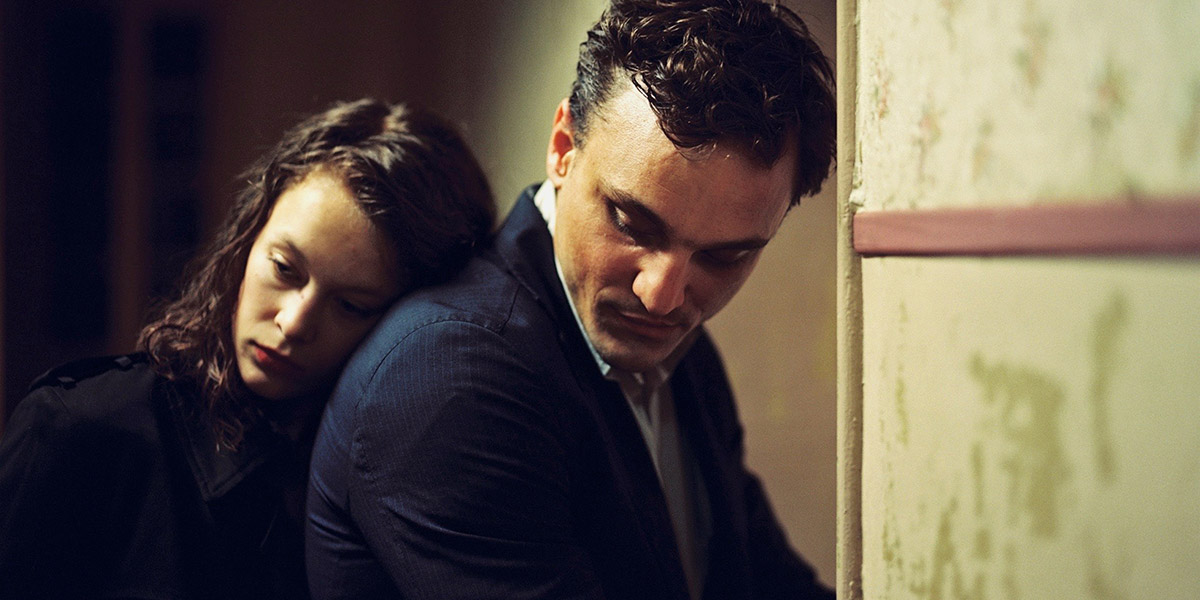
One of the benefits of going to the Chicago International Film Festival is that it allows one to catch up on films that have already garnered some buzz at other fests around the world. Something of a “Greatest Hits” festival, CIFF has always been the place for Chicago premieres of major films from Toronto, Telluride, and more. We’ve already created a portal for some of our coverage of this year’s CIFF films produced in other cities, but I wanted to highlight two CIFF premieres from a pair of truly important filmmakers, Christian Petzold and Olivier Assayas. Both gentlemen are coming off arguably career highs in “Phoenix” and “Personal Shopper,” both films that earned four stars from this site. While their follow-ups may not quite match their predecessors, both efforts have elements to like, particularly the Petzold.
Let's start there. What’s perhaps striking about Petzold’s “Transit,” at least at first, is the common thematic ground it treads with his masterpiece, “Phoenix.” As with that film, Petzold is examining identity—mistaken, deliberately false, and the lies we tell ourselves and others to survive. He has said that the book on which this work is based by Anna Seghers has been a defining one of his career, and it’s easy to see themes of this narrative woven through his other films. In fact, he’s called this, “Phoenix,” and “Barbara” a loose trilogy named “Love in the Time of Oppressive Systems.” The culmination of this makeshift trilogy is a fascinating piece of work that feels like it has slid a bit too far under the buzz radar during one of the most crowded festival seasons in years. Don’t miss the one the first chance you get to see it.
An excellent performance by Franz Rogowski grounds “Transit,” as the entire film is presented from his often-limited perspective. He plays Georg, a man in Paris during an increasingly dangerous and loosely defined occupation. The book was released in 1944 and set in 1942 France as the Nazis overtook more and more of the country, but Petzold moves the action to the present day, giving it a different sense of urgency (and distinguishing it more from “Phoenix”) that feels like it also greatly enhances its atmosphere of confusion. All we know is that people are scared, some are being deported, others taken to camps, and travel papers become a necessity. Georg finds some transit documents in the belongings of a writer who has just committed suicide. He takes them and jumps a train with another refugee for Marseilles, where they hope to catch a boat to Mexico. In Marseilles, Georg meets a number of people, and plays something of a different role for all of them. He’s a father to a boy named Driss; he’s a friend to a doctor named Richard; of course, he eventually encounters Marie, the wife of the man whose identity he has taken.
Much like “Phoenix,” “Transit” contains elements of old-fashioned noir, but there’s an existential dread that weaves through all of it. Georg is basically in purgatory. He reads one of the writer’s stories about a man waiting to get into Hell only to be told that he’s already there. As the saying goes, the waiting is the hardest part. And Petzold is interested in how that waiting to be told if one will escape or die at the hands of an occupying enemy does to a person. It’s a timely film in that sense as international feelings of dread have been on the rise over the last few years. It’s a great, fascinating film. And, if you're wondering, Petzold once again completely nails the landing, nearly matching "Phoenix" in his choice for a final shot that also, somewhat miraculously, feels like a mirror image of that film's brilliant close.

I’m a little less excited about Assayas’ “Non-Fiction” but it’s definitely worth a look. After going existential himself with “Personal Shopper,” the excellent French filmmaker goes into a more personal, playful key with his follow-up, a movie that reminded me of ‘80s and ‘90s Woody Allen in its structure, dissection of relationships, and even a heady dose of self-examination.
Also known as “Double Lives” in its literal French translation (a better title), “Non-Fiction” lays out its structure in the opening scene. A publisher named Alain (Guillaume Canet) speaks to a famous writer and friend named Leonard (Vincent Macaigne) about both his latest work and the changing face of meeting the needs of readers. They talk about using real people in fiction and how the writer’s books are often structured in snippets. The film that follows will be as well, presenting a series of dialogue-heavy scenes between Alain & Leonard, as well as their significant others, Selena (Juliette Binoche) and Valerie (Nora Hamzawi). There will be a lot of discussion of the changing face of publishing—blogs, e-books, etc.—but “Non-Fiction” gets more playful as it goes along, revealing the infidelities and personality flaws of its characters. It’s ultimately a bit too thin to really connect, but it’s never less than likable or enjoyable, which can’t be said about many comedies about the world of publishing.
Brian Tallerico is the Editor of RogerEbert.com, and also covers television, film, Blu-ray, and video games. He is also a writer for Vulture, The Playlist, The New York Times, and Rolling Stone, and the President of the Chicago Film Critics Association.





